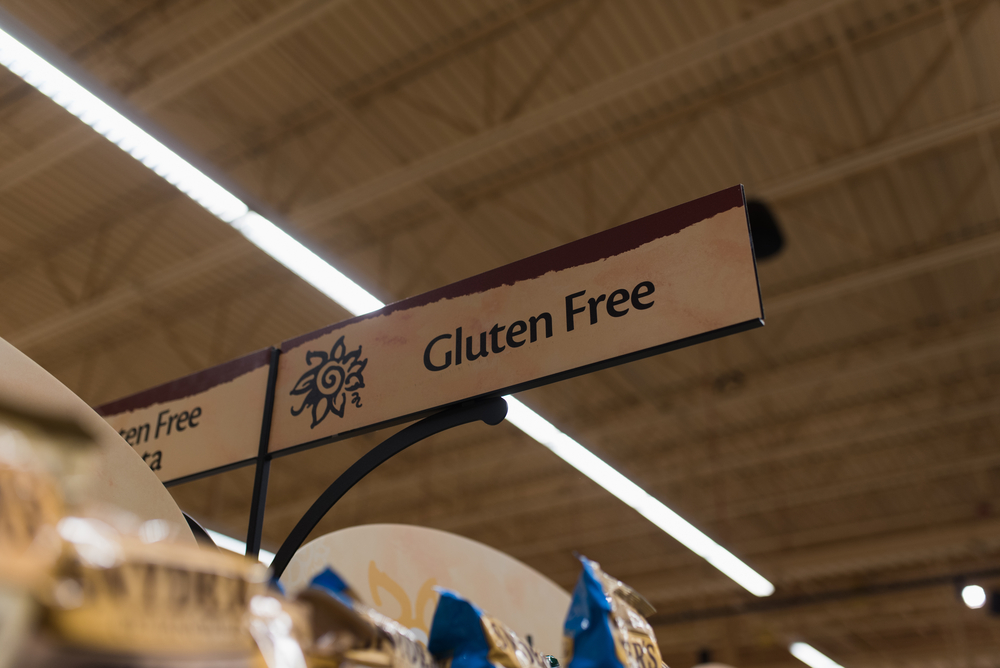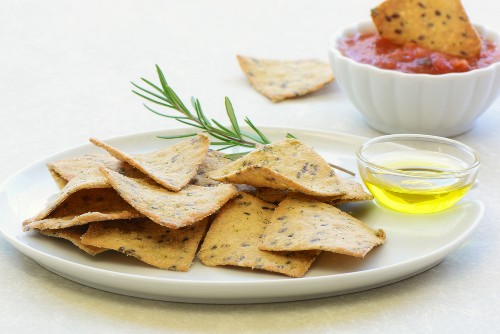By Menachem Lubinsky, President & CEO Lubicom
Take a walk down the aisles at Kosherfest next week and you are likely to find that a third of the 400 booths will have products that are gluten-free, “a substantial increase from just five years ago,” according to Diversified Business Communications, co-producers of the event.
According to accepted medical practice, the only people that really need to avoid gluten are the 1% of the population that suffers from celiac disease – or are they?
Welcome to a largely misunderstood and often hotly debated diet that many non-celiacs consider healthy and perhaps preventative. Many physicians routinely suggest avoiding gluten to patients complaining of stomach discomfort. These physicians say they have seen how avoiding gluten has definitely helped some people. (Read: 16 Everyday Gluten-Free Eats)
Celiac disease is an inherited autoimmune disorder that causes long-term damage to the small intestine. When a person with celiac consumes gluten, a protein found in wheat, rye, and barley, their immune system reacts by attacking the small intestine. According to the Celiac Disease Foundation, the disorder has been tied to other serious health problems, including cancer and type 1 diabetes. Avoiding gluten is the only current treatment.
In the past five years, kosher consumers have bought into gluten-free big time. Malky Levine, manager of the Evergreen stores in Monsey and Lakewood says that it is all part of a trend towards eating healthier and staying well.

Many stores, particularly chains like ShopRite, have special sections for gluten-free foods. Yakov Yarmove of the Albertson’s supermarket chain and a well-known authority in the kosher food industry has a special gluten-free section in his Chicago Jewel-Osco flagship kosher store but he says, “Most producers of gluten-free would rather be integrated on the main shelves. [They are] hoping for a wider audience than just celiac sufferers [to] purchase their products.” Evergreen tried the special shelf but ultimately integrated the products onto the regular shelves. Celiacs seem to know where to find the products they need on the shelf.
Several celiac sufferers we spoke to are ecstatic with the steadily growing number of kosher gluten-free products. It’s like kosher food in general. When national companies like Coke and Pepsi obtained kosher certification, who benefitted most but the people who keep kosher? The sheer number of products that are now kosher, well over 225,000 items, makes it so much easier for a kashrut-observing person to consume kosher products. They can literally walk into any supermarket in the country and fill a shopping cart with kosher foods, even in places that have little or no kosher consumers.
Similarly, the person who is a celiac sufferer may not be too upset that gluten-free has become so widely accepted by all types of people, even those who have no real medical reason for avoiding gluten.
While some believe that gluten-free is misunderstood, people like Mrs. Levine and well-known nutritionist Tamar Feldman of Edison, NJ feel that people are “pretty well educated about what gluten-free represents.”

Mrs. Feldman, a registered dietitian and certified diabetes educator, feels that avoiding gluten can often be beneficial to people who suffer from various autoimmune diseases such as colitis or Crohn’s, but she cautions that “it may not work for all people” – but it’s still “worth a try.” What concerns her are the processed gluten-free products that include lots of fat and sugars that can be even more damaging than the gluten. She sees a very bright future for gluten-free products that are pure “without the junk that is bad for you.”
Mr. Yarmove too feels that it is a trade-off. “While people will feel more comfortable, they may not necessarily be eating healthier given all the sugars and oils that they may consume.”
Mrs. Levine also feels that gluten-free can be beneficial for people who wish to avoid white flour, for example, or experience stomach discomfort when they consume gluten. Mrs. Feldman suggests that some of the people who avoid gluten could just as easily benefit from whole wheat and barley and is very much against the gluten-free products that include all of the additives “that are simply not good for you.”
According to some distributors in the kosher food market, sales of gluten-free products have dramatically increased because of a growing demand by a far more health-conscious customer. They say that even Millennials are much more health-conscious nowadays.
Whether a store segregates the gluten-free products or integrates them on the shelves, it appears that people who wish to avoid gluten are well aware of the products and know where to find them. Esther, a mother of three and a celiac sufferer, says that a decade ago she had “an extremely hard time finding any kosher products I could eat; now I can even walk into a pizza store and have a slice.”
While there are no exact predictions about the future growth of kosher gluten-free, the global market is expected to reach $8 billion by 2024, rising at a market growth of 8.2%. Kosher distributors are estimating that gluten-free sales grew by about 15% in the kosher market in the past five years and expect that pace of growth to continue.
Nutritionists like Tamar Feldman are hoping that gluten-free is also free of those ingredients that are designed to make the foods tastier although definitely “not better for you.”
Mrs. Levine was complimentary of the manufacturers who are turning out the tasty and quality gluten-free products, a testimony of the maturity of the kosher market, but like the other experts advocates that they somehow enhance the taste without the objectionable ingredients.





